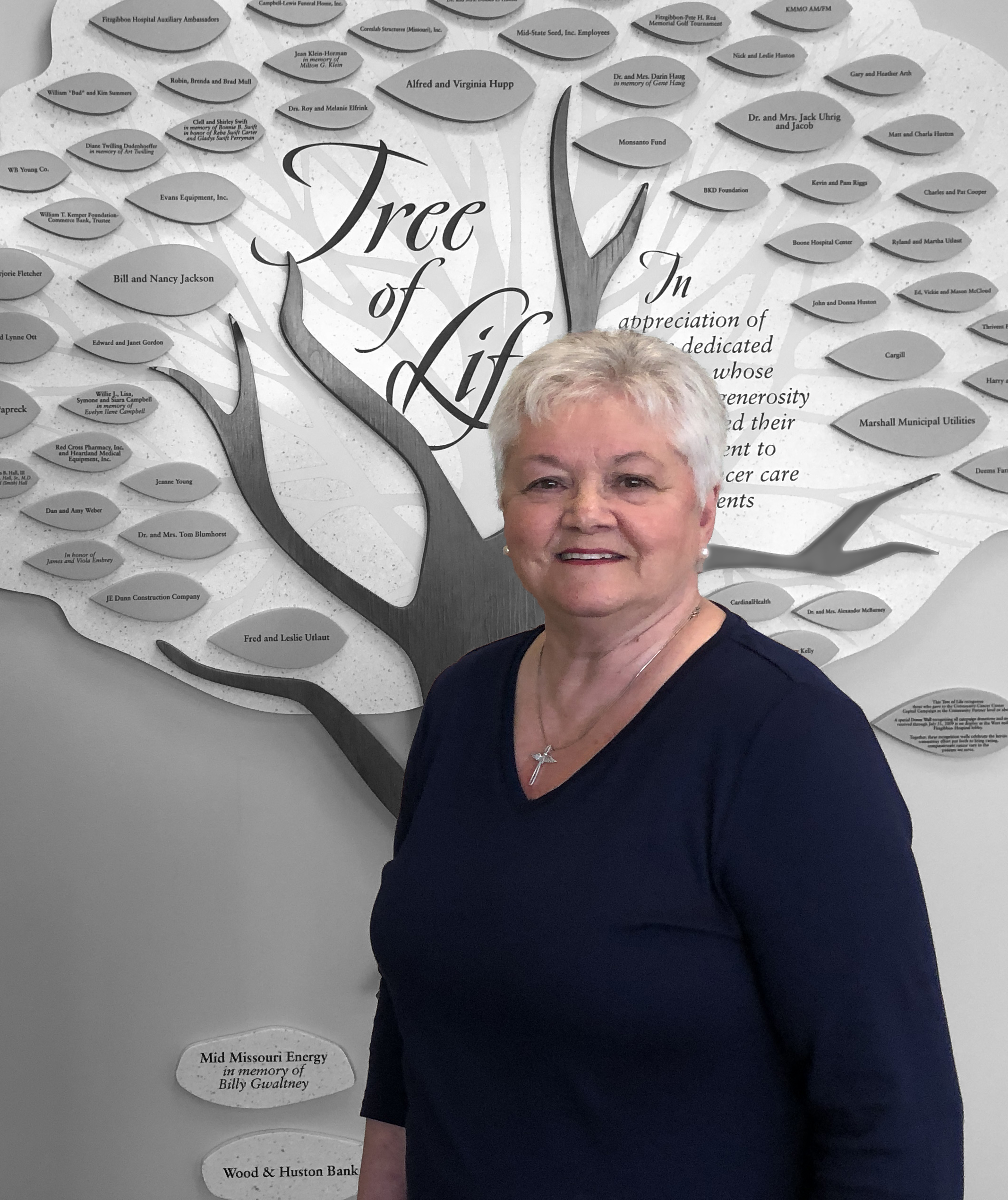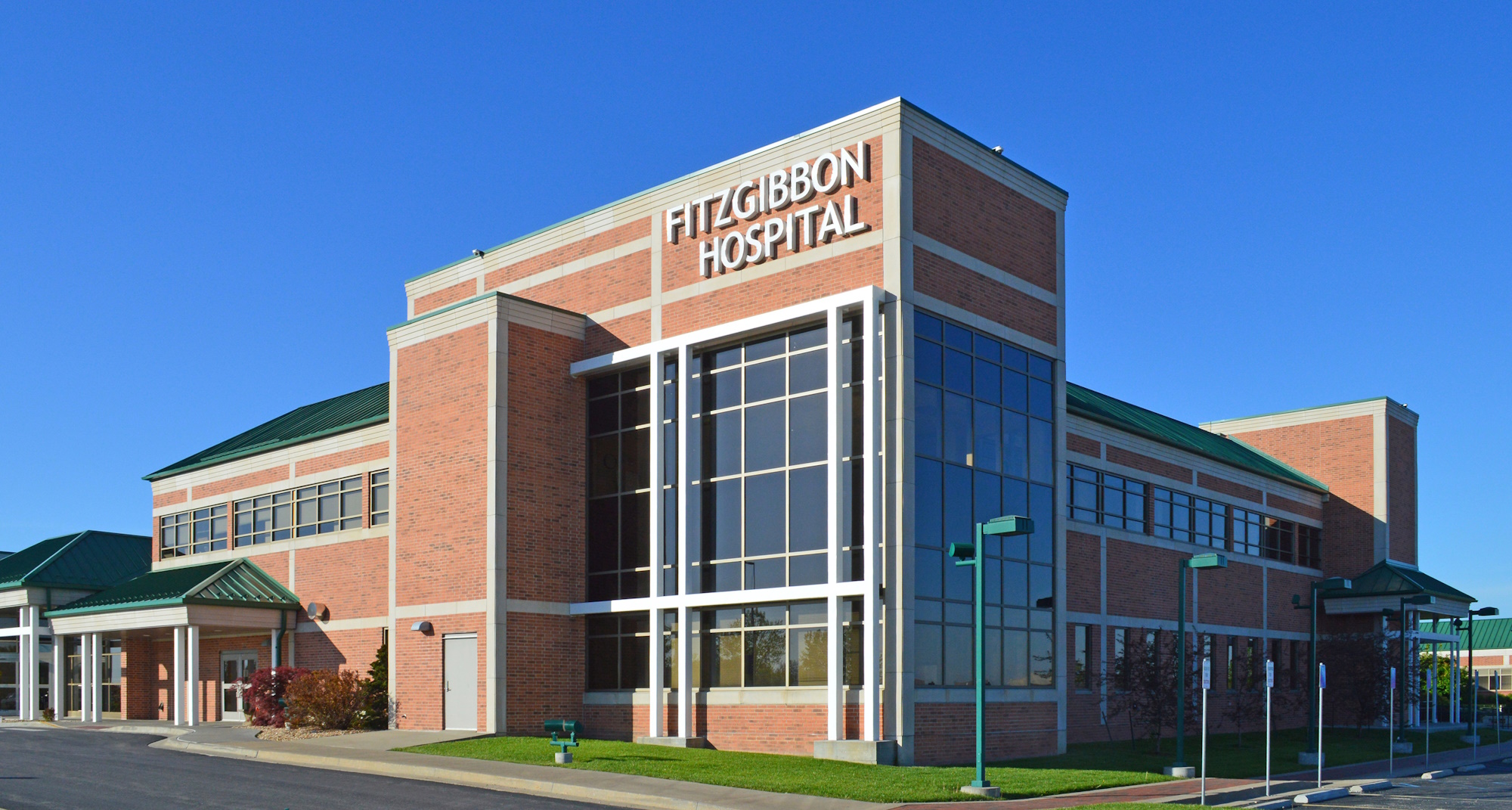 Carter’s work for the Community Cancer Center comes full circle
Carter’s work for the Community Cancer Center comes full circle
The idea of “coming full circle” could not be more meaningful than to Gayle Carter, the former fund development director at Fitzgibbon Hospital, who 10 years ago led the capital campaign for the Community Cancer Center.
“Well I tell ya,” said Carter, as she rocked in an easy chair, describing those days of knocking on doors, sending letters and meeting people to solicit donations. “I talked to all these people who wanted this Cancer Center built. And when we were raising money, you’d cry with them and you’d feel their pain; and you’d think, ‘It’s never gonna happen to me.’ Now here I am. I’ve had two different types of cancer.”
Carter battled non-hodgkin’s lymphoma for the latter half of 2018 and underwent six rounds of chemotherapy at the Fitzgibbon Community Cancer Center. Today she is in remission.
“That chemotherapy was wicked,” she said. “It kind of makes you sick. I live a mile and a half from the hospital, and there were some days…I barely made it home. I don’t know what I’d do without that Cancer Center so close.”
Carter recalled that she was hired at Fitzgibbon Hospital to “do so some fund-raising.” And when the idea for a cancer treatment center was presented by now-retired CEO Ron Ott, Carter said she began talking to community members about whether they thought the plan was feasible.
“I went around and talked to influential people and said, ‘Do you think this will work?’ The more people I talked to on the street, they said, ‘Yes, we need this so badly,’” Carter said.
“But I’m not sure I would have gotten into it if I had known they were raising money for the Martin Center at the same time,” she laughed.
Through the generosity of the community, both projects eventually became realities, although the task was not an easy one. What staff thought would take fewer months but would come about through several large donations, drug on into many months. But it was fueled by hundreds of smaller donations and the rallying of a community determined to bring cancer care close to home.
“The stories of people with cancer – whole families – that’s what kept us going,” Carter said. “We said a lot of prayers in that campaign office.”
“Memorials were huge at the time. I think we had close to 250 different individuals name the Cancer Center as their memorial. Donations came in all the way down to just $25. It was a grassroots effort,” said Mary Keller, campaign associate for the capital campaign, who worked closely with Carter.
Keller made it clear that Carter was determined to meet the goal, even as the campaign wore on much longer than organizers had hoped.
“Gayle just didn’t stop,” said Keller. “She just never lost the commitment, the fight - although I do think she got a little weary.”
Carter agreed, recalling an afternoon when she was on the brink of giving up.
“There was one day when I thought, ‘I don’t know if this is going to come to pass.’ I just closed the doors to the campaign office and walked up around the square to clear my head,” she recounted. “I saw three or four people I knew that had cancer, and they were asking me, ‘How’s it going? We’re getting tired of running up and down the highway.’ And I looked at myself in the glass windows of the businesses, and I thought, ‘What am I thinking? Get back to work! These people need this!’”
A decade later, she is one of those people.
Carter has been a fighter not only for the Cancer Center capital campaign but against her own cancerous demon. In June of 2019, a routine mammogram at Fitzgibbon Hospital resulted in a diagnosis of breast cancer. She underwent a lumpectomy at Fitzgibbon in early July and had her lymph nodes removed as well. Then she started 20 rounds of radiation therapy treatments that finished on Sept. 11, after visiting the Cancer Center every weekday for four weeks.
“The most rewarding thing is, as I sit in the waiting room waiting for my own treatment, I hear other patients saying how fortunate we are that we have this Cancer Center right here. And we don’t have to drive to Columbia or Kansas City,” she said. “That makes me smile.”
When asked what advice she would give to others, she responded:
“Cancer will not wait. We are in a society that puts things off, but cancer will not wait. My goal is improving early detection, making sure everyone gets their tests. People used to see me coming and think I was going to ask for money, and now I say, ‘Have you had your mammogram?’ or ‘Have you had your colonoscopy?’”
Her journey with cancer has been one filled with caring and compassion. From friends leaving anonymous notes and food in her mailbox when she wasn’t home, to the staff at the Cancer Center filling her with confidence that they, too, are fighting “the good fight.”
“You kind of leave there with a feeling of peace that they are doing everything they possibly can. It really is a family atmosphere,” she said. “I’d do anything to help that Cancer Center.”



.png)